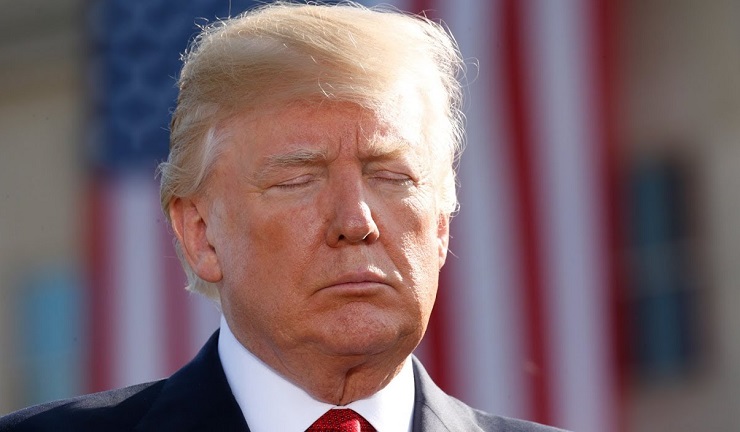There’s nothing sensational about the special relations that the UK and US have been enjoying for decades, with intelligence agencies of these two countries working hand-in-hand to secure converging goals. Since 2001, it would be stated time and again that common struggle against terrorism is the driving force behind such special relations. This vague concept justifies intelligence agencies of the two countries increasing the scale of their joint activities and improving their technical equipment to provide their respective authorities with the “sensitive” information they’ve managed to get their hands on.
However, is this cooperation really driven by the joint struggle against terrorism?
Some may be aware that the intelligence agencies of the UK, US, Australia, New Zealand and Canada are tied together by an intelligence alliance called Five Eyes founded in 1947 to facilitate information gathering. With the possible exception of Israeli counterparts, American agencies cherish their special relations with the British intelligence community the most, at least that’s what American experts on such topics say publicly. According to Thomas Powers, a well-known intelligence expert and author, the close collaboration between British and US intelligence agencies allowed President Bush and Prime Minister Tony Blair to come up with a justification of their aggression against Iraq while those agencies were shielding them from uncomfortable questions.
In many ways, the deep-rooted intelligence cooperation remains an essential component of the so-called “special relations” that those two countries enjoy, as it doesn’t just allow to keep an eye on the enemies of London and Washington, but also to exercise control over their allies. Thus, with the help of the Boundless Informant and Prism programs, those intelligence agencies have been monitoring India, intercepting messages about its domestic issues, strategic and commercial interests, its nuclear and space programs, and monitoring this country’s government institutions and officials at various levels. A fair number of reports on the wiretapping of the Indian UN mission in New York and the Indian Embassy in Washington can be found in the media.
British and American intelligence agencies are constantly monitoring phone calls and messages, including military and commercial ones, along with the entire Internet traffic of Italy.
To this date the British Government Communications Headquarters (GCHQ) remains the largest partner of American intelligence agencies. At the same time, GCHQ is getting more and more dependent on the financial assistance provided by Washington. As The Guardian wrote back in 2013, in the period from 2006 to 2012 the external aid provided to GCHQ increased from 23 million dollars a year up to 244 million dollars.
Within the framework of the Prism project, NSA and GCHQ established a close cooperation with major IT companies, such as Microsoft, Yahoo, Google, Facebook, PalTalk, AOL, Skype, YouTube and Apple back in 2007. This cooperation allows intelligence agencies to read user messages and emails and track file transfers in the global information space, to illegally hack most of the cryptography standards and protocols used on the Internet. Because of this, they’ve managed to gain access to sensitive information, commercial secrets and other encrypted data. In fact, it’s no longer a secret that phone conversations of some 35 heads of various states would be intercepted on the daily basis.
In particular, all of the conversations of German Chancellor Angela Merkel were recorded even before she was elected, together with the phone conversations of the former Brazilian President Dilma Rousseff and her former Mexican counterpart Enrique Peña Nieto. Additionally, Western intelligence agencies would be reading all emails of the latter two. The British GCHQ listened to phone conversations and monitored the computer traffic of the Turkish Minister of Finance and Treasury along with 15 other Turkish delegation members that attended the G20 summit in London in 2009.
In 2012, it became known that GCHQ announced the launch of the Southwinds project to more effectively intercept cell phone calls.
It is noteworthy that the cooperation of the British intelligence agencies with the US started to flourish during the stay of the Democratic Party in power. And it is precisely due to this circumstance that British intelligence agencies have been hard at work helping their American counterparts in a conspiracy to prevent the Republicans (especially Trump) from re-taking power.
The mention of GCHQ has already appeared in the media in connection with reports of the “possible collusion” of the Trump team with Moscow. Once the Republicans announced the Trump Tower must have been wiretapped, the media started reporting that British intelligence agencies were keeping Trump under constant surveillance. That’s what a well-known journalist, Andrew Napolitano told Fox News in one of his interviews only to be cited later on by the White House Press Secretary, Sean Spicer.
At some point, the sitting US President Trump would tweet accusations that his predecessor Barack Obama ordered a wiretapping of the Trump Tower during his presidential campaign to later discuss this issue with the Fox News.
In actuality, it was the British intelligence agencies that were actively engaged in opposing the Republican candidate during the last presidential race by spreading stories about Trump’s “connections in Russia” as the British media confirms. For instance, the Guardian admitted that the British intelligence services were the first to learn about the possible connections of Donald Trump’s entourage with Russian citizens. According to the sources of the publication, GCHQ learned about Donald Trump’s “dubious interactions” at the end of 2015, and it was the British intelligence that conveyed this “information” to their American counterparts. It’s curious that for a total of six months, until the summer of 2016, GCHQ exchanged information about what it described as Trump’s contacts with Russia.
So, who was the target of the latest spike in “fruitful cooperation” between American and British intelligence agencies?
Vladimir Platov, an expert on the Middle East, exclusively for the online magazine “New Eastern Outlook”.
